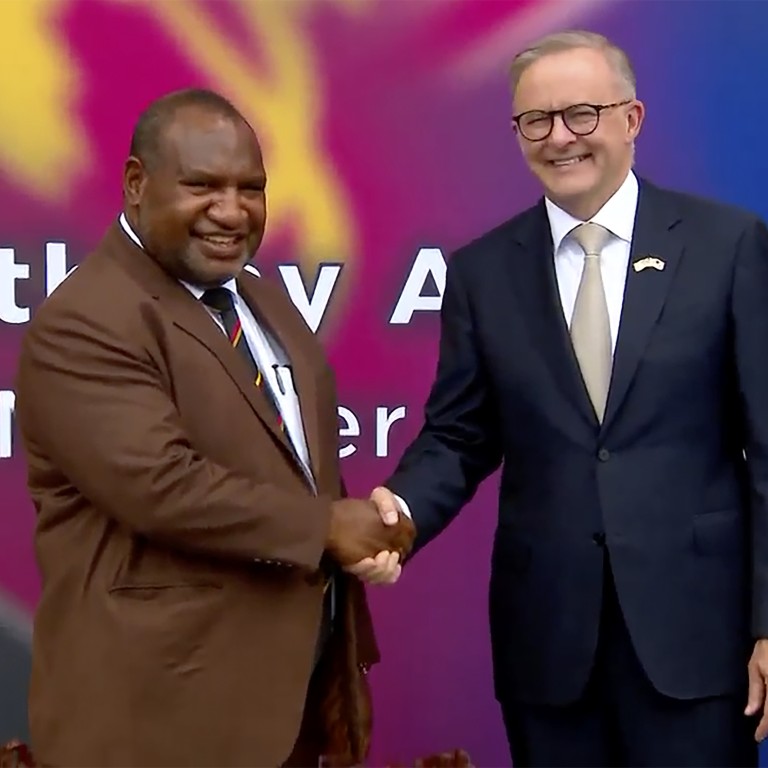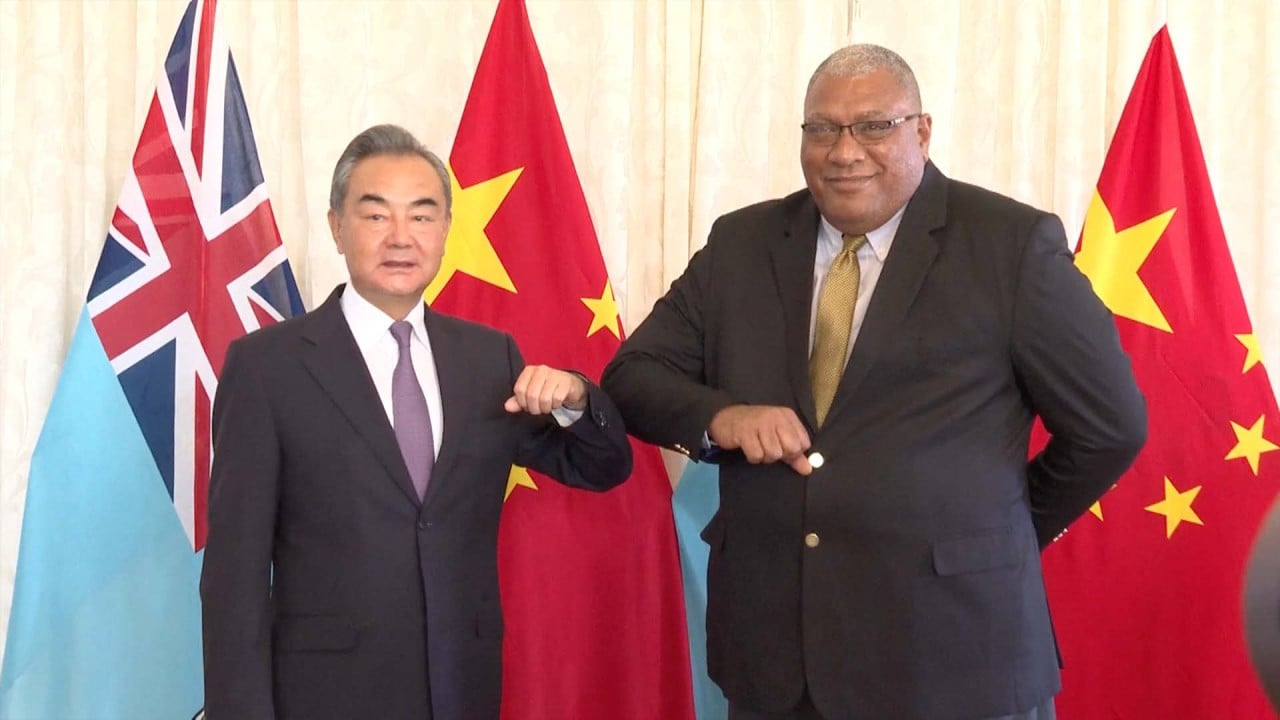
Australia pushes for PNG security pact to counter China’s influence in the Pacific
- Australia’s ‘accelerated timeline’ for signing a security pact ‘speaks to the urgency’ it feels about China’s growing influence, observers say
- It came after Papua New Guinea said it would close its trade office in Taiwan, which analysts called ‘a sweetener’ to improve ties with Beijing
It came two days after PNG foreign minister Justin Tkatchenko had said his country’s trade office in Taiwan, established in 2015, would be closed due to “insufficient economic benefit” and the poor behaviour of its representatives based there.

A review of its foreign missions had indicated that the money spent on keeping the Taiwan office open was “not justified”, Tkatchenko said, and Port Moresby was “completely embarrassed and ridiculed by the behaviour of certain officers”. In September last year, a PNG diplomat made headlines after attacking his wife and an employee at a restaurant in Taipei during a drunken rage.
Given the lack of official diplomatic ties between PNG and Taiwan – Port Moresby has recognised Beijing since 1976, a year after gaining independence from Australia – the closure of its Taipei trade office “does not signal a lurch towards [mainland] China so much as a removal of an irritant in relations with Beijing”, said Carlyle Thayer, an emeritus professor at the University of New South Wales in Canberra.
Yet the “accelerated timeline” of the new security pact – with the details to be finalised by April and the treaty signed before June – “certainly speaks to the urgency which Australia feels” said Maholopa Laveil, a Foundation for Development Cooperation Pacific Fellow at the Sydney-based Lowy Institute.
Australia and Papua New Guinea set to sign defence treaty
Thayer said that the decision by China last year to fund a military hospital in PNG set off “some alarm bells in Canberra”, but added that the reality of Beijing’s “offer of large scale aid and investment have fallen short” so far.
PNG has denied that the trade office closure was a concession to Beijing. Chinese foreign ministry spokesman Wang Wenbin said China welcomed the move as it “shows again that the one-China principle is an overriding trend that enjoys popular support of the international community”.
“Closing the trade office in Taipei is a small collateral for keeping good relations with Beijing,” said Fabrizio Bozzato, senior research fellow at the Tokyo-based Sasakawa Peace Foundation’s Ocean Policy Research Institute.
He said “PNG does not wish to put all its eggs in just one basket” nor does it “wish to be constrained by a binary, zero-sum paradigm when pursuing and developing partnerships” and likely saw the security pact “as the price to pay to secure Australia’s steadfast commitment as a development partner”.
In October, Australian Defence Minister Richard Marles said there was a need to expand military ties and sign a formal security treaty with PNG so that personnel from both sides can “work alongside each other more”.
“We are obviously in a very challenging and complex strategic world and there’s no doubt China forms part of that landscape,” he said.
China aid to Pacific nations plunged as Australia’s spending soared: report
PNG was the first country in the South Pacific to sign a belt and road memorandum of understanding with China, in 2018. Since then, China has built a six-lane highway and the Tari Airport in PNG’s Hela province, and upgraded the country’s International Convention Centre.
Prime Minister Marape has been invited to visit Beijing later this year, the Lowy Institute’s Laveil noted, with a view to signing a free-trade agreement that would build upon a deal signed in June 2020 allowing for the direct export of seafood to China from PNG – a move Port Moresby described at the time as significant for its tuna industry.
China’s bilateral trade with PNG stood at US$4.02 billion last year – up 25.6 per cent from 2021 – though Australia remains its neighbour’s biggest trade partner, recording more than A$6 billion (US$4.6 billion) worth of bilateral trade in 2020 alone.
“China is also supportive of direct flights from Port Moresby to Shanghai, to target the 100 million Chinese tourists that leave China every year,” Laveil said, adding that Marape has mentioned in the past that his country is still an emerging economy and cannot afford to get involved in a stand-off between its major trading partners.

Still, Thayer the professor said PNG was motivated to further develop its relations with Australia to increase trade, attract greater investment, and access more visas under a labour mobility scheme.
“Of course, closer Australia-PNG economic, defence, security and police relations will preclude opportunities for China to gain influence in Port Moresby,” Thayer said.
Apart from tackling climate change and cybersecurity, the formal security pact with Australia will also cover areas such as assisting the police force and dealing with financial crimes and money laundering, according to PNG officials.
‘Inconceivable’: ex-envoy blasts Australia for losing Pacific trust
The Sasakawa Peace Foundation’s Bozzato said Port Moresby expects Australia to align itself more with “PNG’s priorities in addressing the country’s unique challenges” such as its overreliance on resource extraction, and the high levels of poverty, unemployment, national debt and crime.
He also noted that independence movements in the autonomous region of Bougainville – an archipelago to the country’s east – and the possibility of similar movements in other provinces, referring to the Indonesian province of West Papua, meant there was “significant potential for fragmentation within PNG”.
“Fragmentation could create opportunities for China to gain influence and presence,” Bozzato said, adding that for countries like PNG greater competition “is increasingly seen as an effective option for gaining international relevance and securing development help”.


